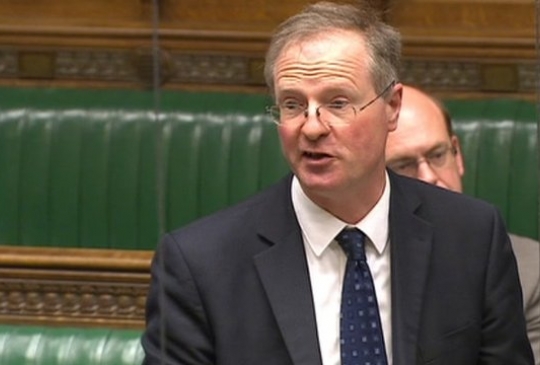
Jeremy Lefroy, MP for Stafford, calls to remember survivors and highlights the importance of reparation and justice in yesterday’s UK Parliamentary backbench business debate, agreeing on a motion related to the 20th anniversary of the Rwandan genocide.
The full debate can be read at Hansard commencing column 358 and extract, below, of Jeremy Lefroy’s intervention at Column 379.
« This is a time to remember not just those who perished and their families, but the survivors. I, too, have been very privileged to take part in Project Umubano, and I pay tribute to my right hon. Friend the Member for Sutton Coldfield (Mr Mitchell). One organisation we work with in Rwanda is SURF, or the Survivors Fund UK. With tremendous support from the UK—from DFID and Comic Relief, and from individual donors—it is working with local organisations to support survivors, whether widows, young people or orphans, and umbrella organisations. Together, such organisations care for the needs of more than 300,000 survivors and their dependants, who are often some of the poorest. They obviously suffer from disability and unemployment, and they include widows and children who have had to bring up their siblings from a very young age. The work of all the organisations aims to foster self-reliance. I read about a lady called Francine, who said:
“Before I was alone, I never thought about the future of my life. After joining this group”—a project supported by DFID in Rwanda— “I can look forward because I share my life experience with others.”
That is so important. We should not forget the survivors, and I am sure that we will not do so.
Survivors have a need not just for food and employment, but for justice. For many of them, justice has still not come. There has been the International Criminal Tribunal for Rwanda in Arusha, which will close this year. It has cost $1 billion, which is an enormous amount of money. It has done important work, but it has no mandate for reparation, and the Rwandan survivors have received none. In many ways, the Gacaca courts have been much more effective and efficient than the International Criminal Tribunal for Rwanda—they have a mandate for restitution and have made many thousands of restitution grants, although many of them have not been fulfilled—but even they do not have a mandate for reparation. It is very important to the survivors—or, God forbid, to victims of any future mass killings—that the concept of reparation is implemented and not forgotten, because it is a vital part of justice. »
This debate was scheduled by the Backbench Business Committee on Thursday 8th May, following representations from Dr Julian Huppert, Mr Martin Horwood and Mr Brooks Newmark. The motion was agreed:
« That this House commemorates the 20th anniversary of the Rwandan genocide, when over the course of a 100-day period in 1994 at least 800,000 Rwandans were murdered; and calls on the Government to reinforce its commitment to the Responsibility to Protect Doctrine and to working within the UN to promote international justice and to avoid mass atrocities which are still committed across the globe today. »
Extract from Hansard, UK Parliament
